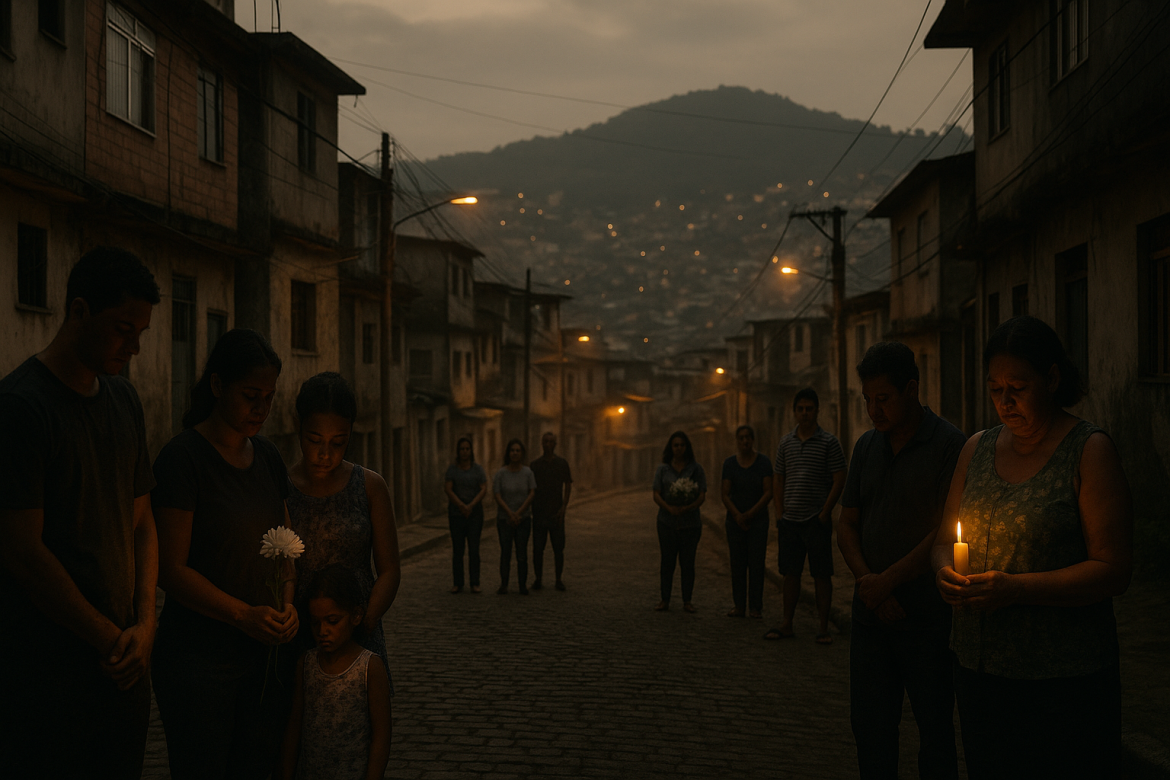Rio de Janeiro is reeling from the aftermath of what authorities are calling the deadliest police operation in Brazilian history.
A massive raid targeting the Red Command gang on Tuesday left at least 132 people dead, with residents finding additional bodies overnight in wooded areas.
As per the reports, over 2,500 police and military personnel were mobilised for the operation.
The security forces were deployed across the Complexo de Alemão and Penha favelas, resulting in 81 arrests and the seizure of 93 rifles and over half a ton of narcotics.
Operation gone wrong: What triggered the bloodshed
The raid kicked off early Tuesday morning, when heavily armed police units moved into two massive favela complexes with helicopters overhead and armored vehicles rolling in.
It was part of “Operation Containment,” something authorities had been building toward for more than a year as they tracked the Red Command’s drug network and territory grabs.
The plan, at least on paper, was to serve arrest warrants. But things spiraled almost immediately. Gun battles broke out across the neighborhoods, catching most of the city off guard.
In a move that stunned even seasoned security officials, gang members used drones to drop explosives on police and set up burning barricades.
By nightfall, the sound of gunfire and explosions made parts of Rio look and feel like a war zone.
Among the 132 people who died were four police officers. Governor Cláudio Castro later defended the raid, calling it a necessary strike against “narco-terrorism.”
But with such a massive death toll, critics are now asking whether the response was truly proportional, and whether anything was done to protect the civilians trapped in the middle of the fighting.
The aftermath: Grief, controversy, and calls for justice
By the next morning, the aftermath looked devastating. In Penha, people woke up to bodies lying in the streets. Some residents went into the woods behind the favela to look for relatives who hadn’t returned home.
They eventually carried out dozens of corpses and laid them in the open so families could try to identify them. Mothers and siblings cried over body bags and sheets, begging for dignified burials and answers.
Officials are insisting that most of those killed were armed gang members who fought back.
But activists and rights groups on the ground say they have seen signs of executions, including bodies with gunshot wounds to the back of the head.
The UN Human Rights Office has said it is “horrified” and wants a full investigation.
Anger spilled into the streets. Residents blocked roads, took over buses, and forced parts of the city to shut down.
With schools closed and protests spreading, the raid has cast a long shadow over Rio just as it prepares to host major global climate events, and has put fresh international attention on Brazil’s hardline policing.
The post 132 dead, dozens injured: what’s happening in Brazil’s Rio de Janeiro appeared first on Invezz

